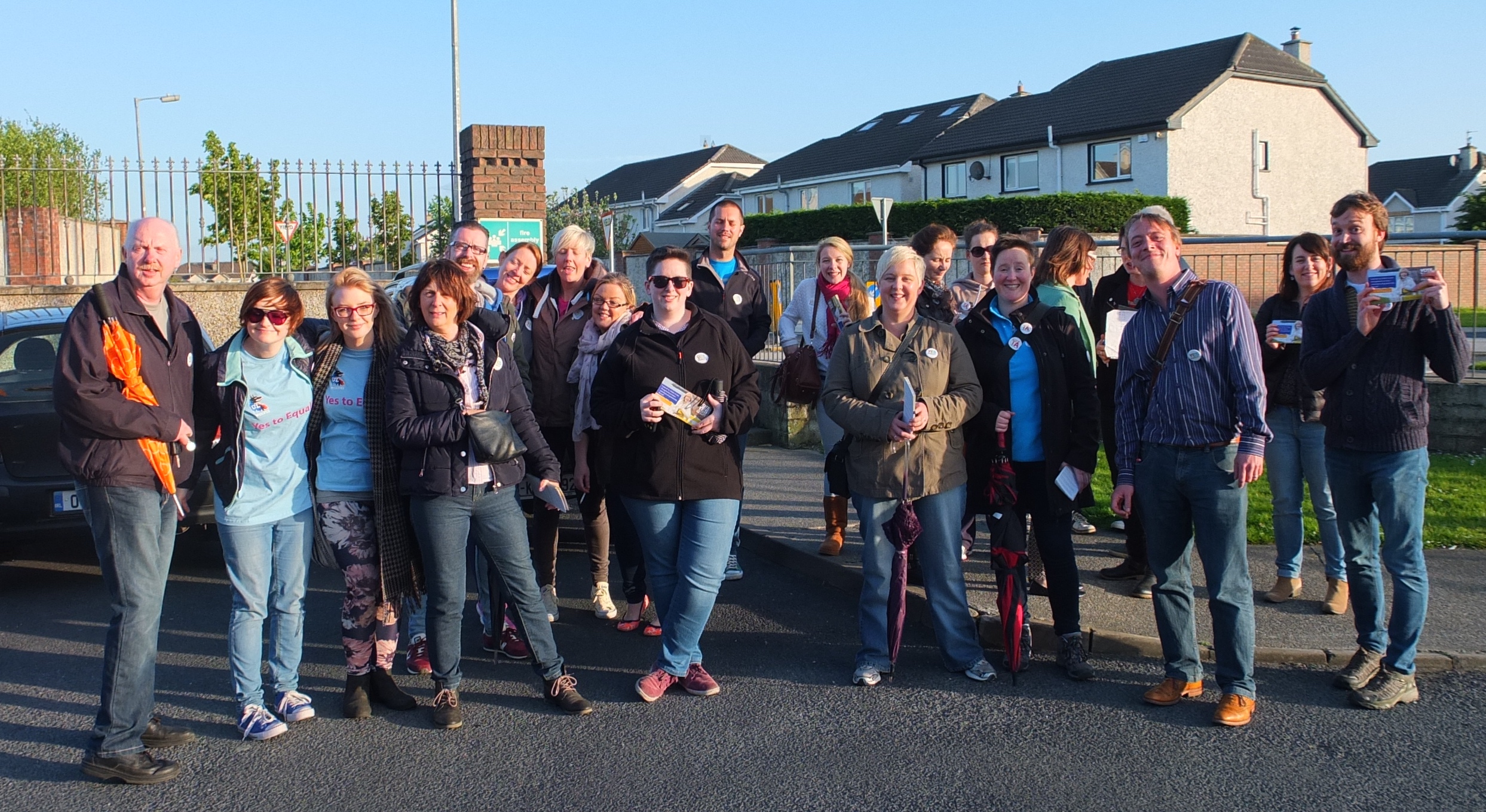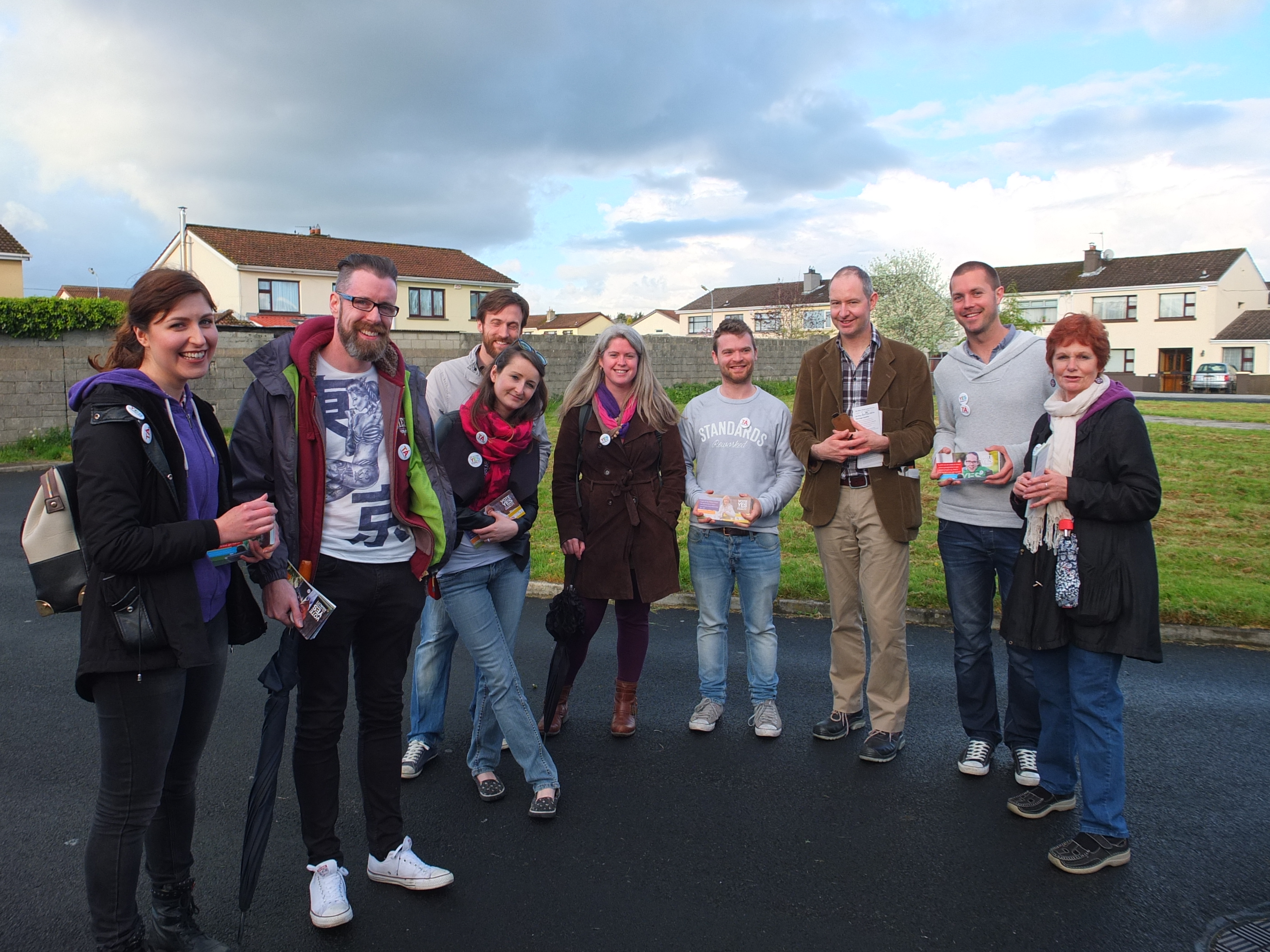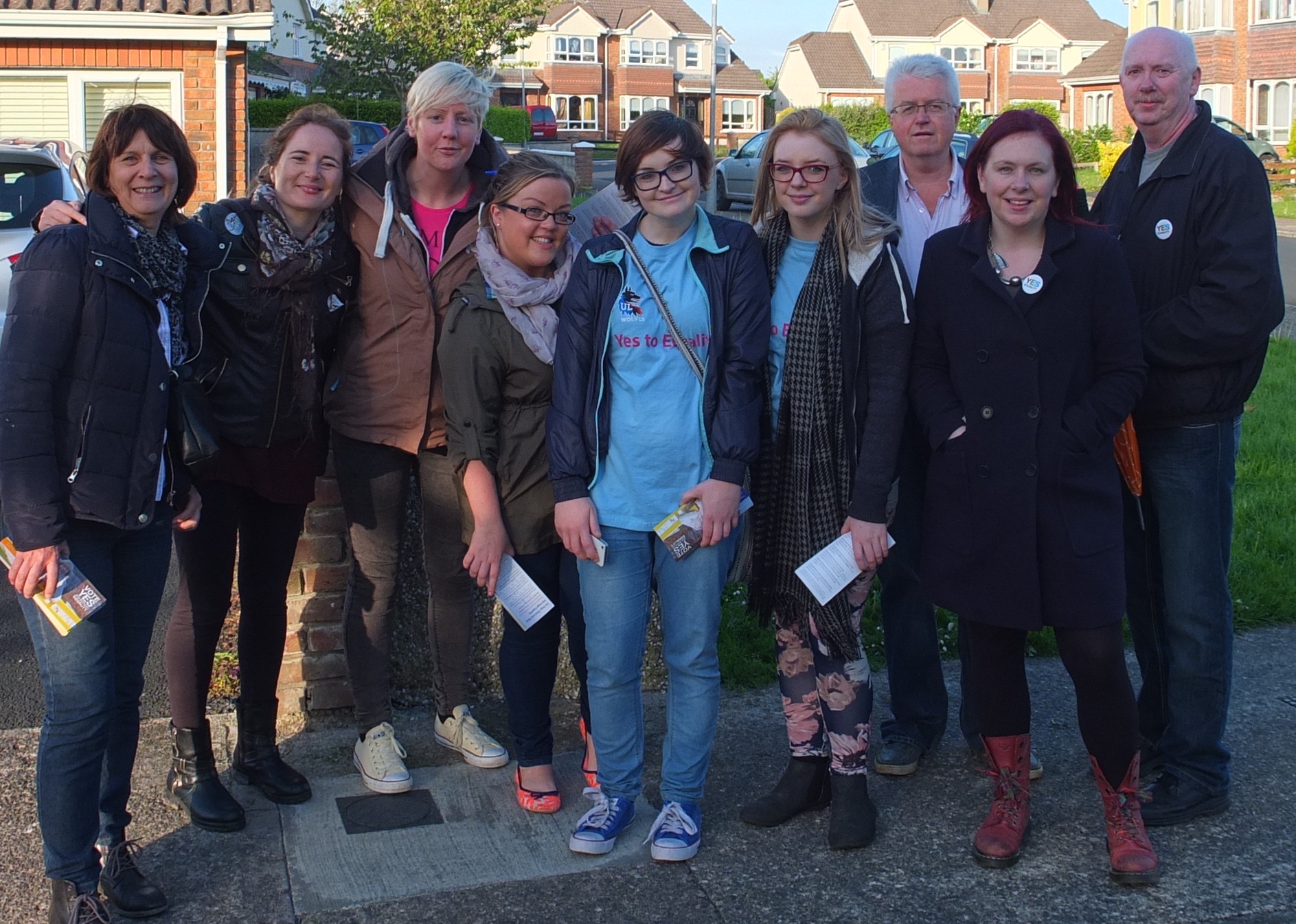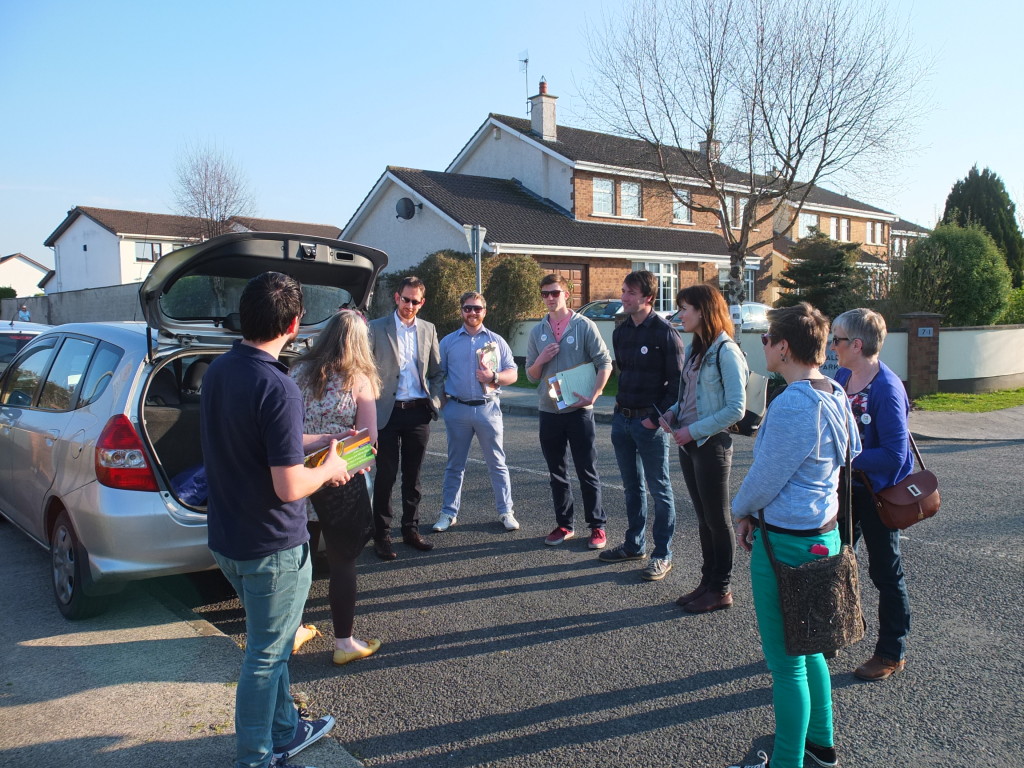I posted a list of all the candidates running in Limerick City, together with a list of questions. Only three candidates responded: James Gaffney, Jan O’Sullivan and Michael Noonan. Here are their answers.
James Gaffney, Green Party
1. How seriously should we take climate change, and what specific policy measures do you think we should take to combat climate change? I’m particularly interested in measures you think that might slow economic growth in the short term but which would have long-term positive effects for our country.
We are the first generation to feel the effects of Climate Change, and the last who can do anything meaningful about it.
The need to address long-term problems, such as climate change, is an overarching value of the Green Party. We support the enactment of national legislation to respond to climate change and transition to a low-carbon, climate-resilient economy. This will reduce our over-dependence on imported sources of fossil fuel energy. Global events related to extreme weather, such as storms and droughts, could compromise our food security and lead to increased immigration into Ireland by ‘climate refugees’.
By 2050, Ireland’s power, heat and transport systems should no longer rely on fossil fuels and our agricultural system should achieve carbon neutrality. This is technologically possible, and would result in greater employment, energy efficiency, security, an improved economy, and improved public health, in addition to contributing to a healthier climate
We need to establish ambitious but realistic binding national greenhouse gas emission reduction targets for 2030 and aim for 100% decarbonisation of the power system and an 80% overall reduction in national emissions by 2050You mention measures that might slow economic growth in the short-term, however I believe that an Irish economy that is carbon-neutral will be a stronger one. The €5.7 billion a year that we spend on fossil fuels could be kept in our economy rather than going to oil-producing nations. We will also gain a competitive advantage from moving faster than other nations on climate change.
2. Our regional towns and cities are suffering. Here in Limerick we’ve seen our city as well as the villages in our county undermined by ribbon-development and one-off housing in the countryside. How do you think we should balance people’s desires to build where they want, with the need for better planning that avoids sprawl and strengthens our villages, towns and cities?
We need a National Spatial Plan with climate change as a foundation stone. Any plan that relies on fossil fuels as the driver of an economy will see us falling behind, as the rest of the world switches to a cleaner renewable future. Any plan that thinks Ireland can set the course of our own destiny without an appreciation of global trends is fraught with risk.
In my manifesto I talk about the need for a Regional Authority which would have responsibility for leading on a spatial plan for the Mid-West that would focus on Limerick City as a destination for families and businesses.
The only plan that can succeed is a truly long term one.
Our new national plan puts proper spatial planning at its core. Where we think ahead and plan our public infrastructure so that people from all over Ireland can live and work where there are services and communities. Where we focus on what we can do best at home – in tourism, agri-food, energy, manufacturing and new digital services; where we restore the traditional values of banking to every part of the country so we support sustainable, well paid jobs.
Ours is an investment plan for the next generation.This election debate is about much more than the fiscal space. It is about the public space.
Whoever is in power in the next Dáil will put resources into the areas that they value. So that’s the question people need to ask of themselves and of politicians as we near polling day.
3. Do you agree with tougher sentencing for criminals, or more rehabilitation? I’m particularly interested in your position on how we should approach drug addiction within the justice system.
We need an after prison support system, with one agency coordinating fully integrated supports for accommodation, education, employment.
We should increase crime preventative measures, e.g. increasing the age limit for the application of the Garda Youth Diversion to 18-24 year olds.
On drug addiction, I feel strongly that this is a medical issue, not a criminal justice issue.
Jan O’Sullivan, Labour Party
1. How seriously should we take climate change, and what specific policy measures do you think we should take to combat climate change? I’m particularly interested in measures you think that might slow economic growth in the short term but which would have long-term positive effects for our country.
I think climate change is one of the most serious issues facing the global population today. During my time as Minister for Trade and Overseas Development Aid I saw at first hand the damage it visits on some of the poorest communities on the planet. I was also proud to work with NGOs and Departmental officials to ensure that tackling climate change had a central role in our Overseas Development Aid policy.
Of course climate change is not just an issue that effects the developing world. Long-term analysis of data demonstrates that our climate is warming with all that this entails, including rising sea levels.
I fully support the climate change legislation that was passed (with all-party support) in the Oireachtas last December. The statutory frameworks established by that legislation (including five yearly national mitigation plans and five yearly national adaptation frameworks) will provide a clear roadmap on what we need to do to reduce greenhouse gas emissions and also the steps we need to take to plan for a changing climate.
The legislation will also establish the Climate Change Advisory Council on a statutory basis.
In relation to economic growth I don’t think the issue actually revolves around the rate of economic growth. I think that all activity needs to be sustainable and that smart, green solutions can ensure that economic growth and job creation can go hand-in-hand with good environmental practices.
2. Our regional towns and cities are suffering. Here in Limerick we’ve seen our city as well as the villages in our county undermined by ribbon-development and one-off housing in the countryside. How do you think we should balance people’s desires to build where they want, with the need for better planning that avoids sprawl and strengthens our villages, towns and cities?
The points you raise are very valid. Poor planning decisions can blight a community for decades, even generations.
Planning and development needs to be driven by a long-term vision for a community – not just the demands of one particular sector.
As a former Minister for Housing and Planning I think my track record shows I deliver on these principles.
I oversaw a process that dezoned land which could have accommodated more than 500,000 houses. This was done to limit urban sprawl and to ensure that future development is concentrated in our towns and villages.
Also, in my first nine months as Minister I used my powers under Section 31 of the Planning and Development Act on three occasions to overturn decisions contrary to good planning. The specific issues involved zoning for development on flood plains, in areas isolated from towns and zoning that threatened wildlife habitats. In the 10 years before I took office this power was only used eight times.
I also dedicated a significant amount of time and energy to tackling the legacy of unfinished housing developments across the country, a process that has resulted in a 75% reduction in the number of these estates over the past five years.
In my opinion that Development Plan is the most powerful tool to ensure proper planning and development. New planning legislation which is in the pipeline will establish a planning regulator which I fully support. In addition to its investigative functions the regulator will have an education role which I think is vital. At local authority level and in our communities we need to have the knowledge and tools to make locally-based, informed decisions about plans that will impact on our community for decades.
3. Do you agree with tougher sentencing for criminals, or more rehabilitation? I’m particularly interested in your position on how we should approach drug addiction within the justice system.
I support judicial discretion in sentencing. While sometimes this can be frustrating I acknowledge that judges hear all the facts of a case during trial and post-conviction details and I think that they are best placed to decide on the length of sentence.
I also fully support acknowledging the medical as well as the criminal aspect of addiction and that this needs to be tackled if individuals and communities are to get relief from the tragedy that alcohol and drug addiction can inflict.
In that regard I have supported my colleague Minister Aodhan O’Riordain’s efforts to establish safe facilities for those who are addicted to drugs where they can also come in contact with services that can assist them.
Michael Noonan, Fine Gael
1. How seriously should we take climate change, and what specific policy measures do you think we should take to combat climate change? I’m particularly interested in measures you think that might slow economic growth in the short term but which would have long-term positive effects for our country.
2. Our regional towns and cities are suffering. Here in Limerick we’ve seen our city as well as the villages in our county undermined by ribbon-development and one-off housing in the countryside. How do you think we should balance people’s desires to build where they want, with the need for better planning that avoids sprawl and strengthens our villages, towns and cities?
3. Do you agree with tougher sentencing for criminals, or more rehabilitation? I’m particularly interested in your position on how we should approach drug addiction within the justice system.
I attach a copy of the Fine Gael Election Manifesto which I trust clarifies the matters you have raised in your correspondence.

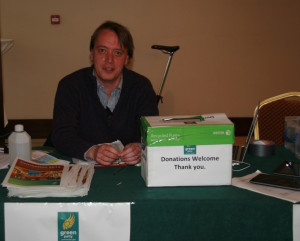
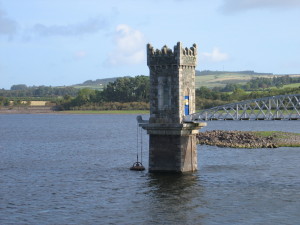



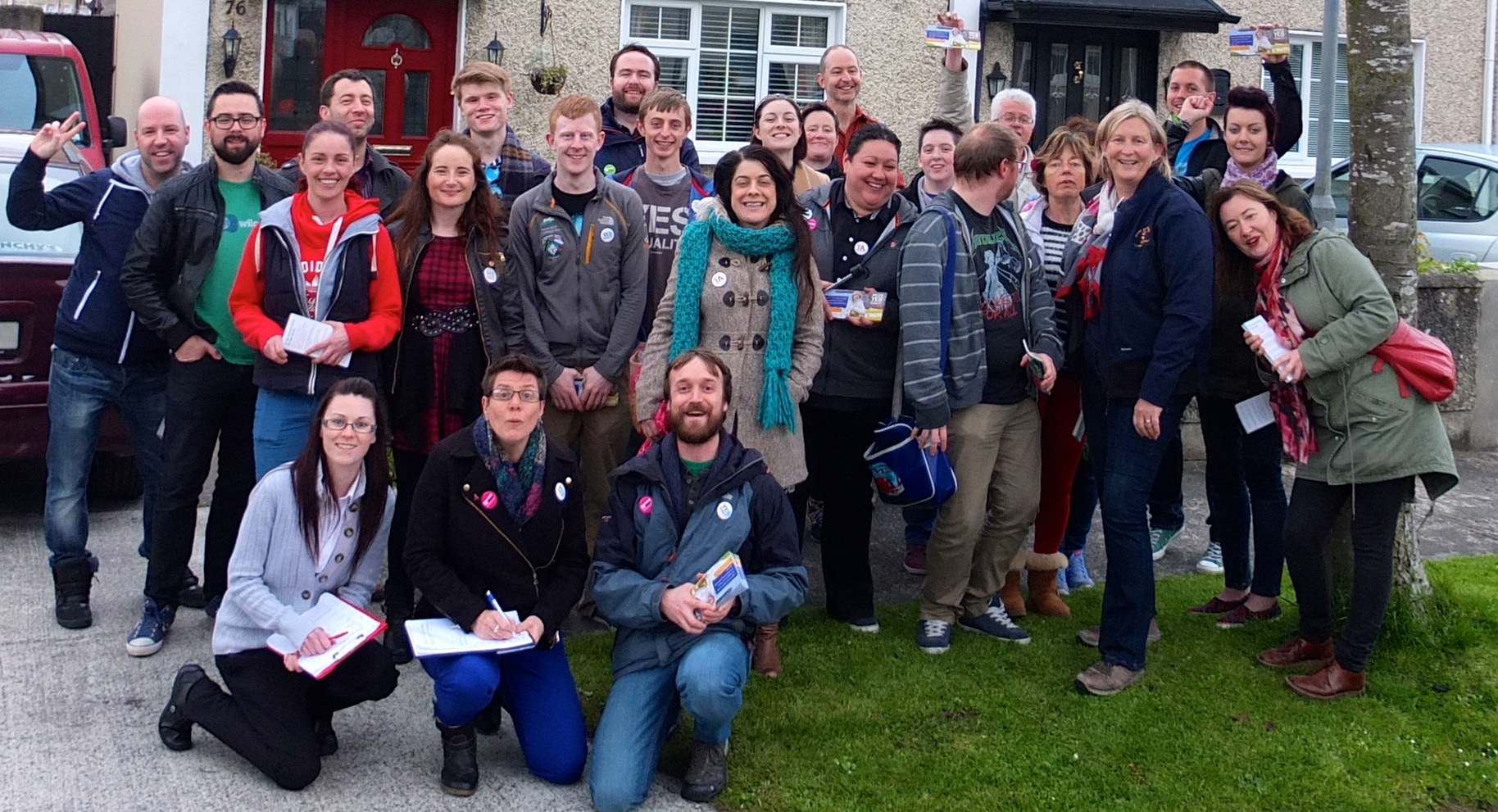
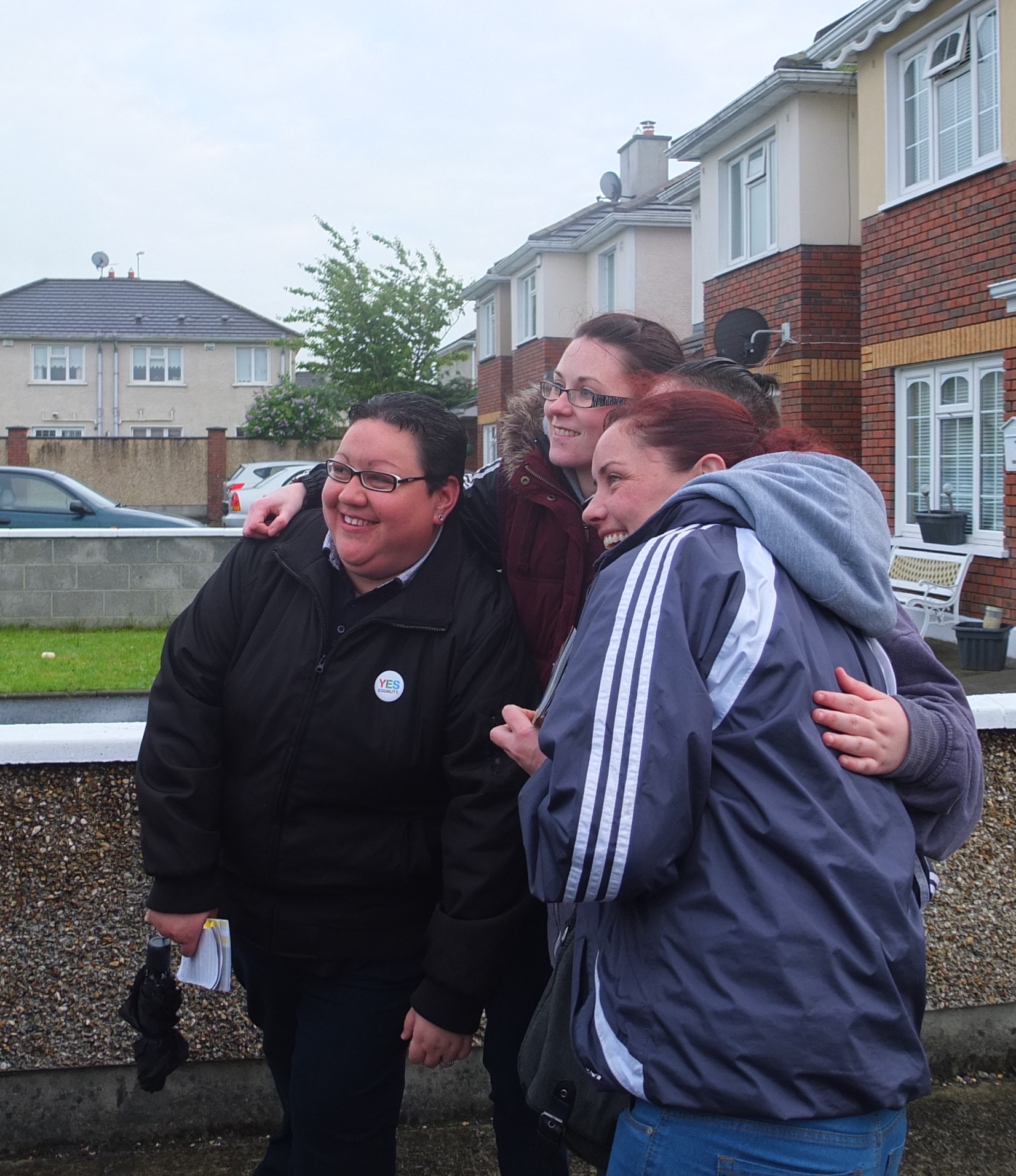 We usually meet at 6pm, after a brief set of introductions and a run through talking points, we head out and knock on doors. Anybody new is warmly welcomed and paired up with someone who has canvassed before. For 2 hours we knock on doors around an estate in Limerick City. About a half of people won’t be in or won’t feel like coming to the door. For the other half we get to have a conversation.
We usually meet at 6pm, after a brief set of introductions and a run through talking points, we head out and knock on doors. Anybody new is warmly welcomed and paired up with someone who has canvassed before. For 2 hours we knock on doors around an estate in Limerick City. About a half of people won’t be in or won’t feel like coming to the door. For the other half we get to have a conversation.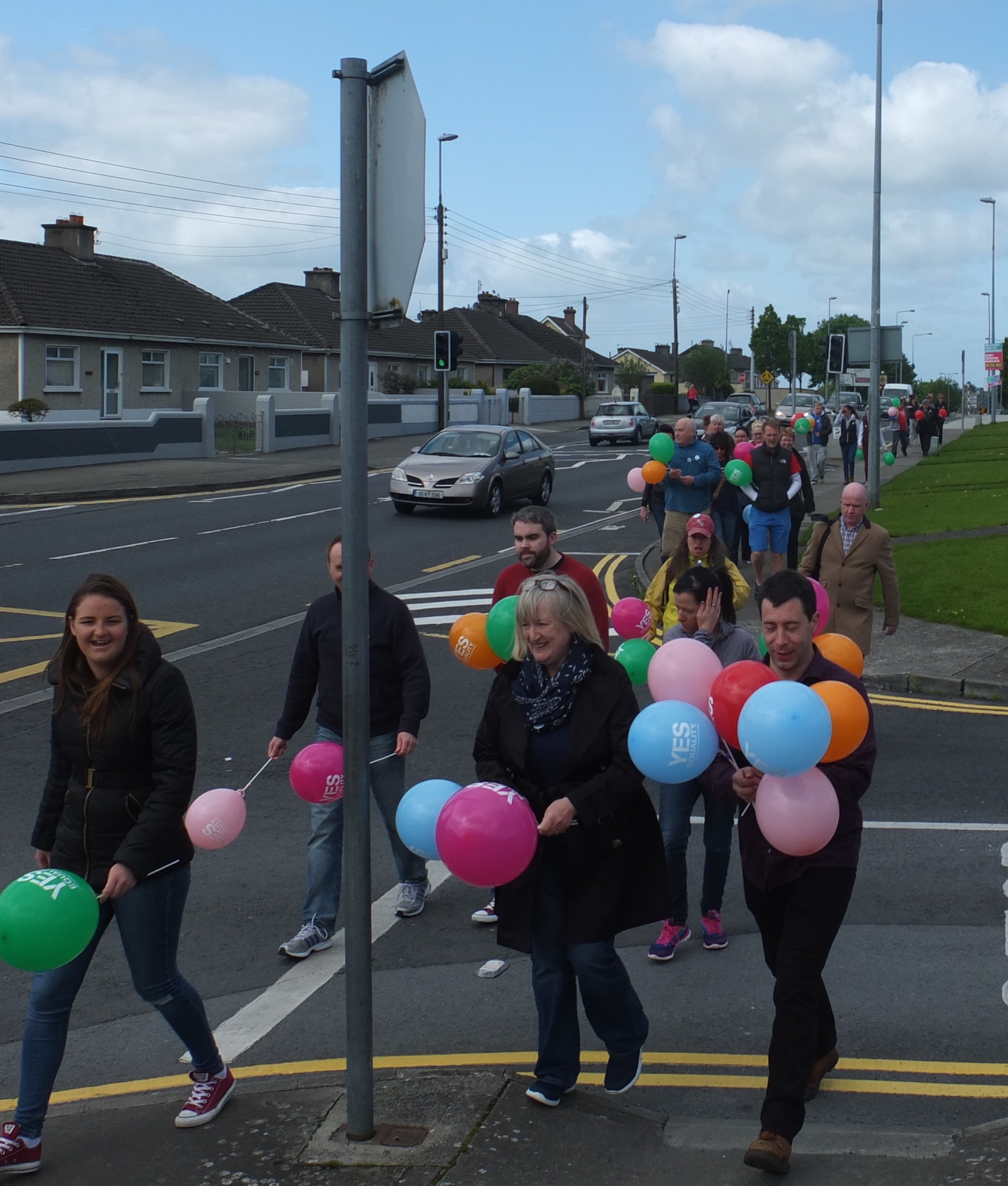 That conversation will go a number of different ways but overwhelmingly it is respectful. If someone comes to the door, invariably we apologise for bothering them. Whether a voter indicates that they are voting yes, or voting no, or are undecided, we ask them if they have any questions or concerns. And at the end of the conversation we thank them for their time.
That conversation will go a number of different ways but overwhelmingly it is respectful. If someone comes to the door, invariably we apologise for bothering them. Whether a voter indicates that they are voting yes, or voting no, or are undecided, we ask them if they have any questions or concerns. And at the end of the conversation we thank them for their time.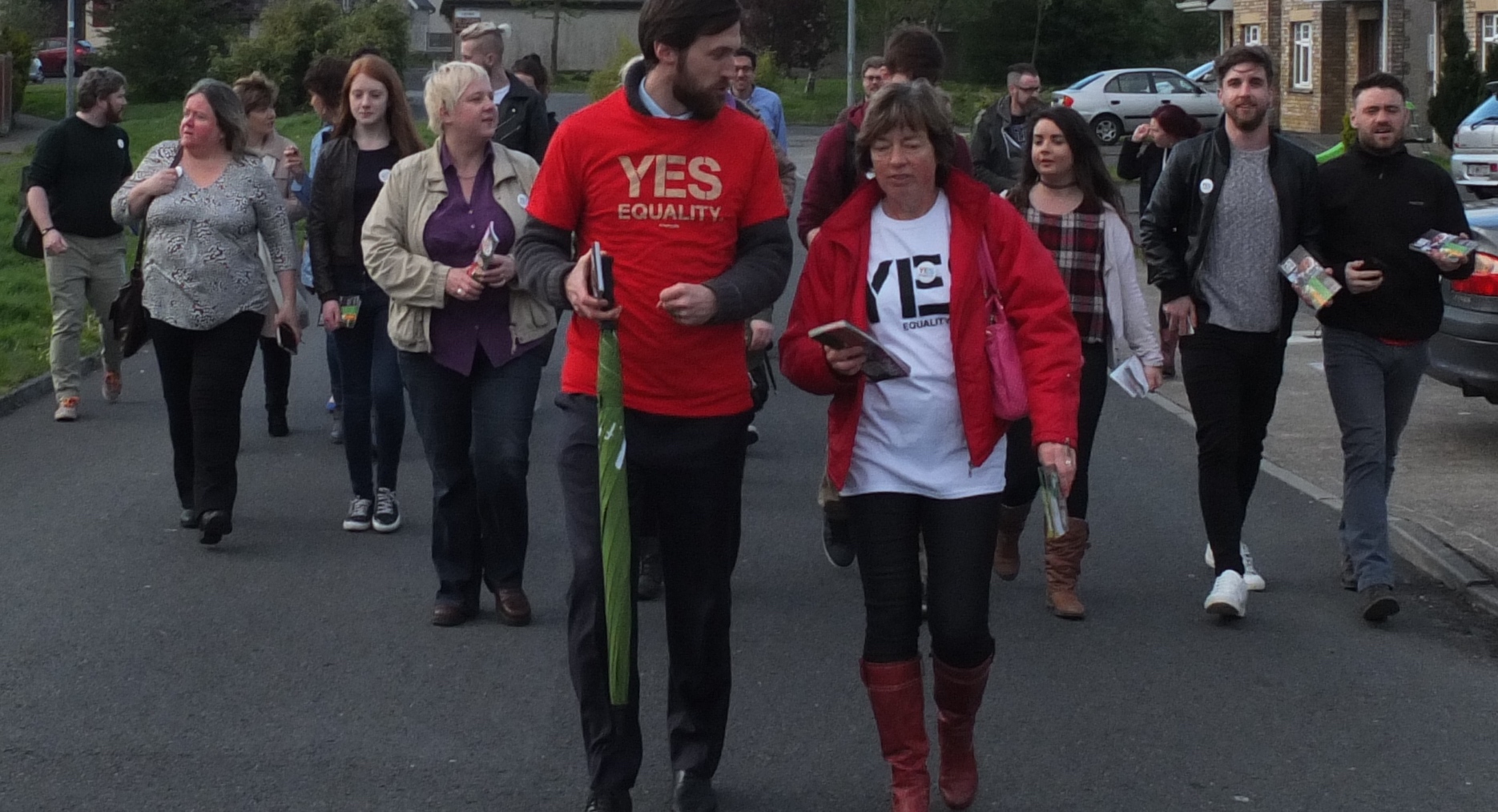 I have witnessed the incredible strength and dignity of my fellow canvassers as they knock, smile, and ask; night after night. Most people, whether they are voting yes or no, are absolutely lovely. A small proportion are not. But I’m proud to say that I’ve not heard of one canvasser losing their cool. Think of how you would feel to knock on a stranger’s door to ask them for something that you desperately needed, only for them to call you abnormal, or unnatural. Even though this doesn’t happen very often, the fact that it always gets answered with ‘well sorry to bother you and thanks for taking the time to talk to me’ fills me with awe at my fellow canvassers strength and dignity.
I have witnessed the incredible strength and dignity of my fellow canvassers as they knock, smile, and ask; night after night. Most people, whether they are voting yes or no, are absolutely lovely. A small proportion are not. But I’m proud to say that I’ve not heard of one canvasser losing their cool. Think of how you would feel to knock on a stranger’s door to ask them for something that you desperately needed, only for them to call you abnormal, or unnatural. Even though this doesn’t happen very often, the fact that it always gets answered with ‘well sorry to bother you and thanks for taking the time to talk to me’ fills me with awe at my fellow canvassers strength and dignity.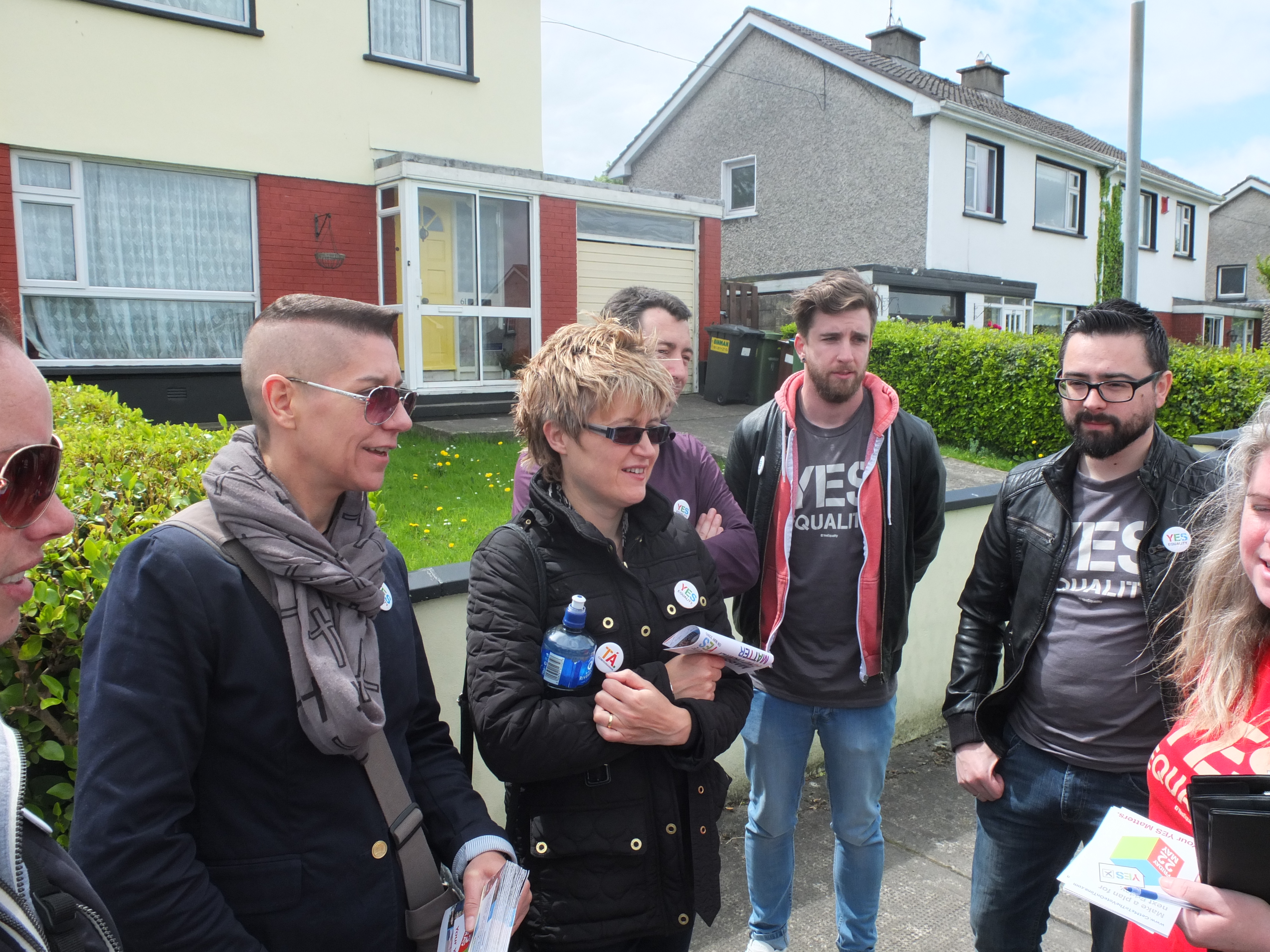
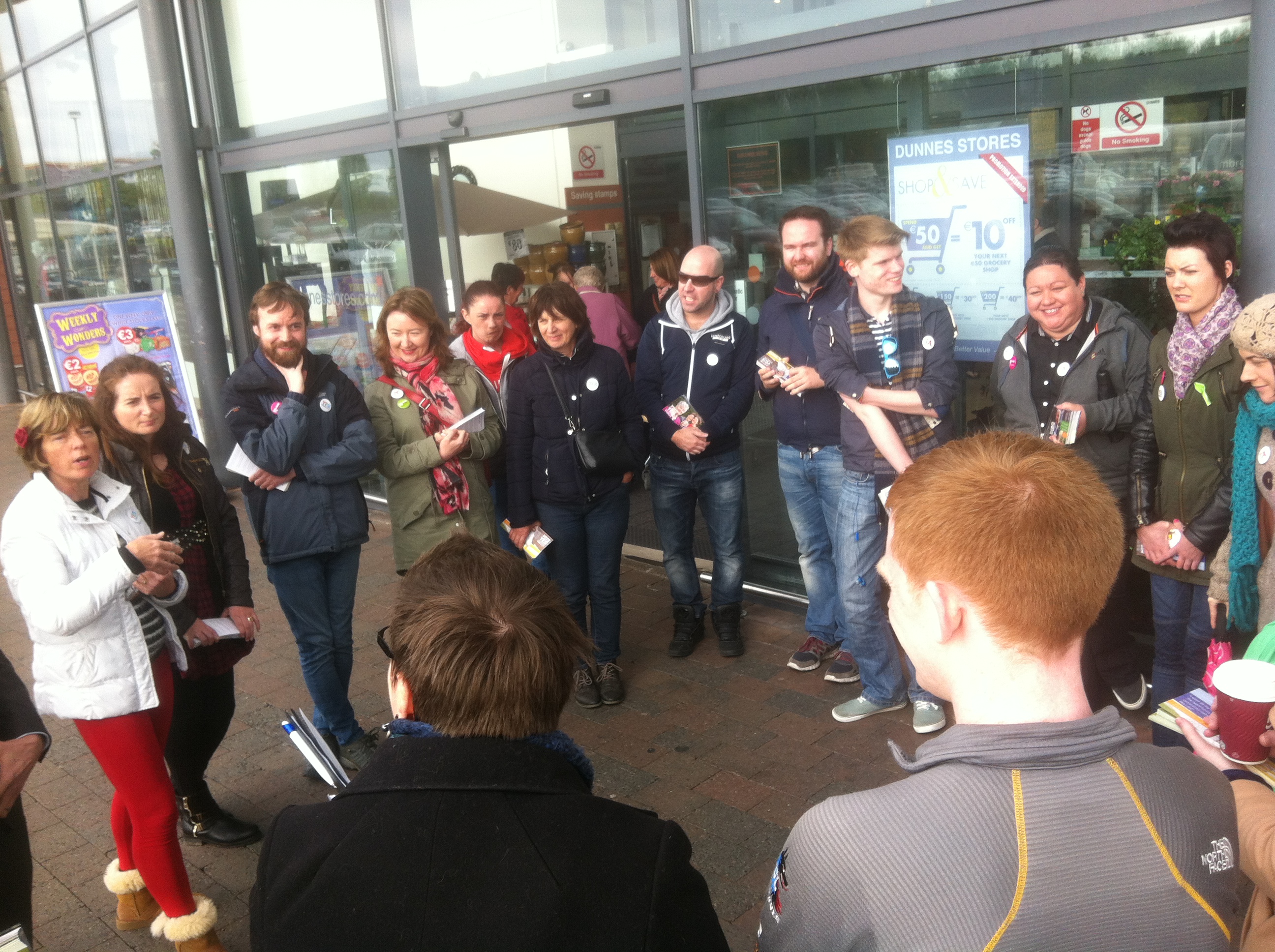 There are times in your life when you make a lot of friends: when you start school or college, your work, or maybe a sport or hobby that you like to do with others. I’m old enough to have finished my education, I run a very small company, and most of my hobbies are fairly solitary, so I never thought that I would have one of those moments where I would make a lot of friends.
There are times in your life when you make a lot of friends: when you start school or college, your work, or maybe a sport or hobby that you like to do with others. I’m old enough to have finished my education, I run a very small company, and most of my hobbies are fairly solitary, so I never thought that I would have one of those moments where I would make a lot of friends.